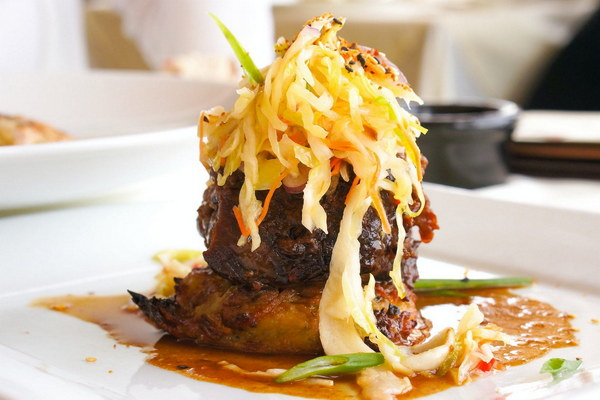Revitalizing the Body The Healing Power of Warming Kidneys, Dispersing Cold, and Nourishing Spleen to Dredge Dampness
In the realm of traditional Chinese medicine, the harmonious balance of the body is paramount. One of the most effective ways to achieve this balance is through the use of herbal remedies that target specific organs and their associated functions. One such remedy is the combination of herbs known for warming kidneys, dispersing cold, and nourishing the spleen to dredge dampness. This article delves into the properties of these herbs and their synergistic effects on overall health.
The human body is a complex organism with intricate interconnections between its various systems. In traditional Chinese medicine, these systems are governed by the concept of Yin and Yang, where balance is essential for good health. Among the numerous formulas designed to restore balance, the combination of warming kidneys, dispersing cold, and nourishing the spleen to dredge dampness stands out for its comprehensive approach to healing.
The kidneys, according to traditional Chinese medicine, play a vital role in the regulation of water balance, reproduction, and the body's overall vitality. When the kidneys are weakened, coldness can permeate the body, leading to various health issues such as weakness, fatigue, and even chronic diseases. To combat this, warming kidney herbs are employed to strengthen the kidneys and dispel coldness.

One such herb is Eucommia ulmoides, also known as duhong. This herb is well-regarded for its ability to tonify the kidneys, strengthen the bones, and alleviate pain. By promoting the flow of blood and Qi (vital energy), Eucommia ulmoides helps to dispel coldness and improve kidney function.
In addition to Eucommia ulmoides, other warming kidney herbs such as Cuscuta chinensis (tu si zi) and Morus alba (sang shen) are often included in these formulas. These herbs not only warm the kidneys but also tonify the kidneys, helping to restore their normal function.
The spleen, another crucial organ in traditional Chinese medicine, is responsible for the transformation and transportation of nutrients throughout the body. When the spleen is weakened, it can lead to dampness, which manifests as various symptoms such as bloating, fatigue, and poor digestion. To counteract this, herbs that nourish the spleen and help to dredge dampness are used.
A well-known spleen-nourishing herb is Astragalus membranaceus (huang qi). This herb is known for its ability to tonify the spleen and lungs, boost the immune system, and improve overall vitality. By strengthening the spleen, Astragalus membranaceus helps to prevent dampness from forming and promotes healthy digestion.
Other spleen-nourishing herbs that are commonly used in these formulas include Poria cocos (fu ling) and Codonopsis pilosula (dang shen). Poria cocos is particularly effective in removing dampness and promoting urination, while Codonopsis pilosula is renowned for its ability to tonify the spleen and Qi.
The synergy of these warming kidney and spleen-nourishing herbs is what makes them so powerful in treating various health issues. By combining these herbs, the formula can simultaneously warm the kidneys, disperse cold, and nourish the spleen to dredge dampness, effectively addressing the root cause of the problem.
In conclusion, the combination of warming kidney, dispersing cold, and nourishing spleen to dredge dampness is a potent herbal remedy that can benefit those suffering from kidney weakness, coldness, and spleen-related issues. These herbs work together to restore balance in the body, leading to improved health and well-being. As with any herbal treatment, it is essential to consult with a qualified practitioner to ensure the appropriate use and dosage of these herbs for your specific health needs.









